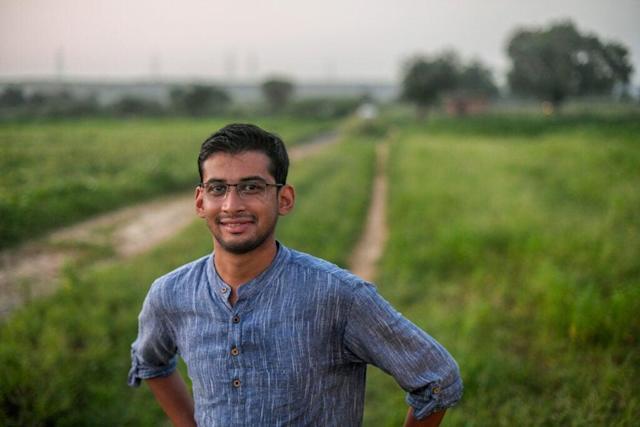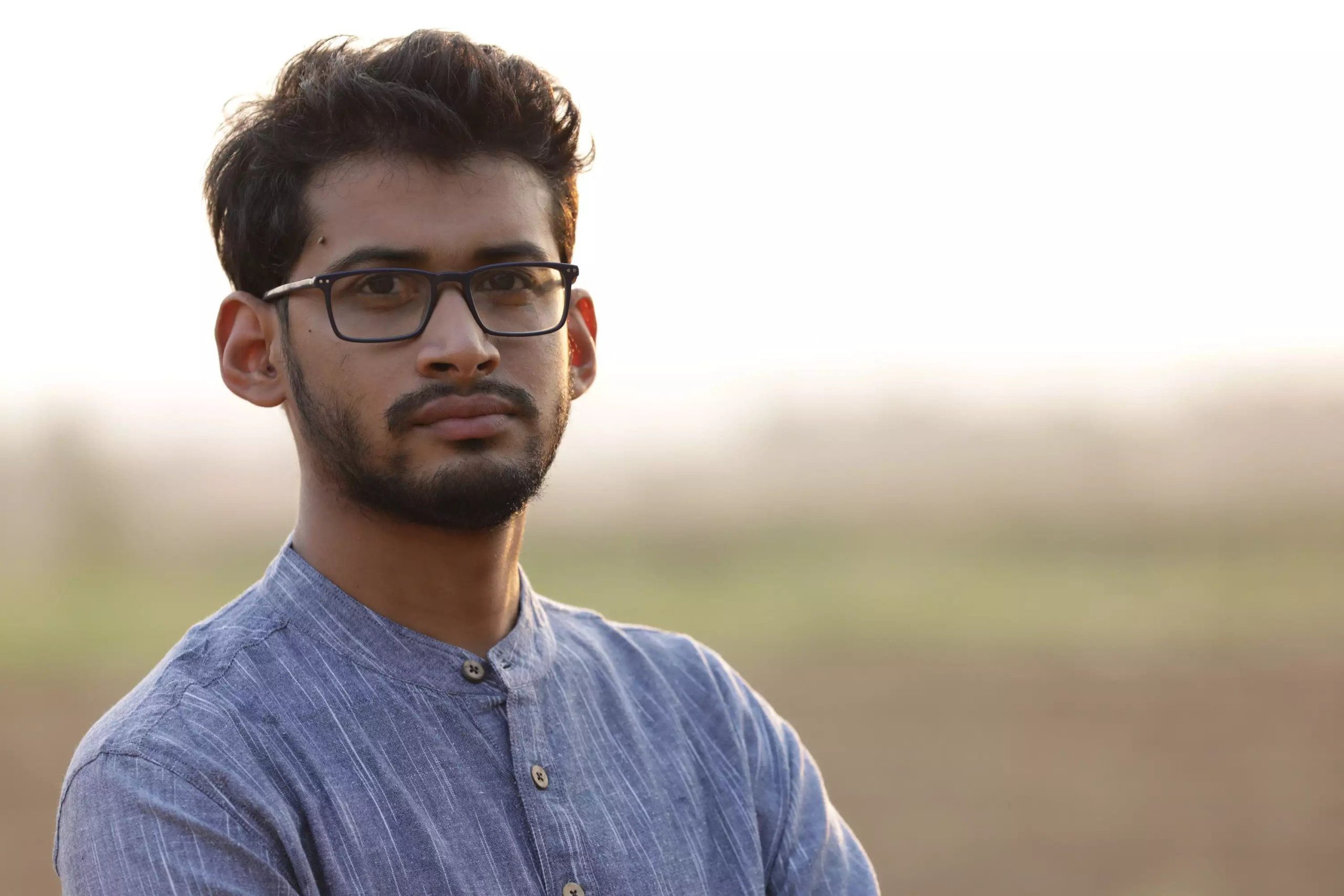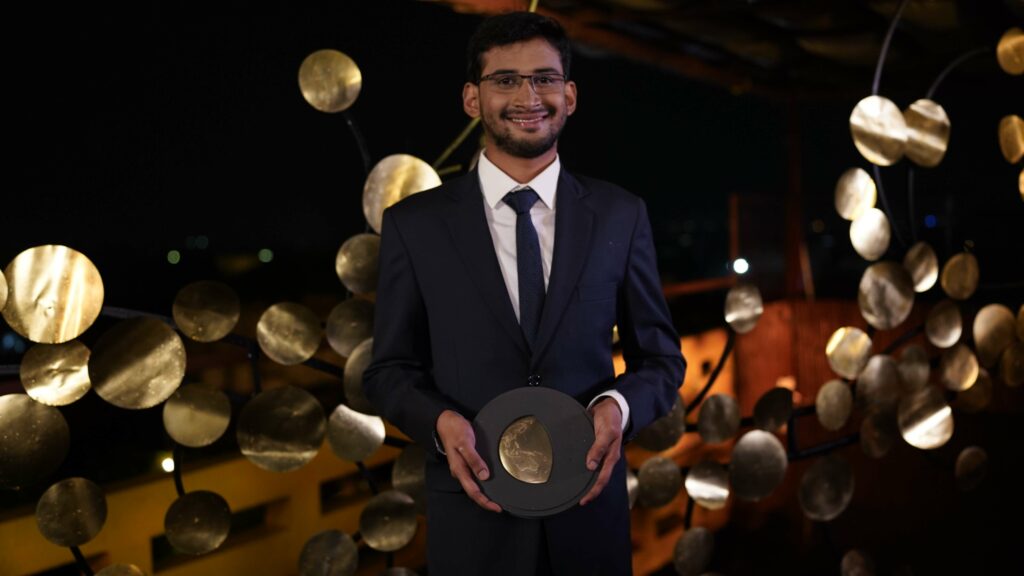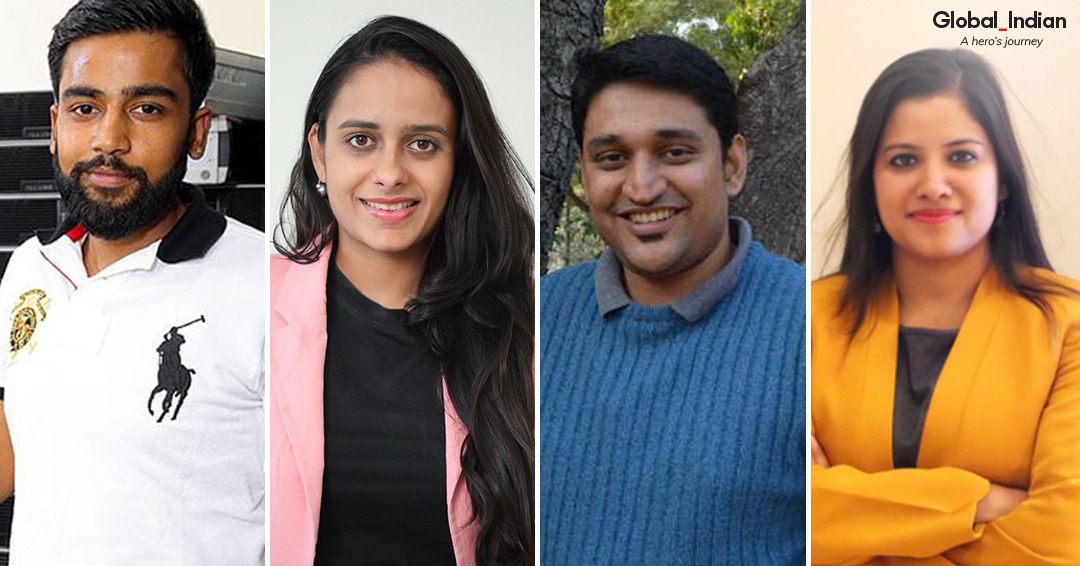(October 25, 2021) Every year, reams of newsprint are filled with reports about the poor air quality in the country. Come winter, and news about smog in North India due to crop burning, a dismal air quality index, of a capital struggling to breathe, and schools and offices being forced to halt operations take over. In fact, the toxic haze can even be seen from outer space. The tug of war between governments and farmers looking to get rid of agricultural waste seems endless. This is when Vidyut Mohan, a Delhi-based entrepreneur stepped in with his startup Takachar. The firm has developed a unique technology to convert agricultural waste biomass into usable fuel and fertiliser, with the potential to change the way India breathes in the near future.
Lending credibility to Vidyut’s work is the fact that Takachar recently bagged the inaugural edition of the Earthshot Prize under the ‘Clean Our Air’ category. Set up by Prince William and the Royal Foundation, the awards are dubbed as the Eco Oscars that honour initiatives that showcase human ingenuity in mitigating the environmental impact of climate change. The winners, who received £1 million to carry forward their work and research, were selected by a jury panel that included Indra Nooyi, Sir David Attenborough, and Prince William.
An incredible achievement for #CleanOurAir Winner: @BiomassTakachar 💨🎉
We’re so excited to see your project develop and help us achieve our goal of restoring the planet by 2030!#EarthshotLondon2021 #EarthshotPrize pic.twitter.com/5CH7L1S4LN
— The Earthshot Prize (@EarthshotPrize) October 19, 2021
What Takachar does
Founded in 2016, Vidyut began working on a solution to prevent stubble from being burnt. At the same time, he also wanted to create income opportunities for farmers. Since then, Takachar has been dramatically increasing the amount of crop/forest residues that are transformed into marketable products around the world. Takachar manufactures a small-scale and low-cost piece of equipment that uses oxygen-lean torrefaction to process waste biomass such as rice residuals and coconut shells into fuel and fertiliser. In an interview with The Print, Vidyut said, “[Our equipment] has its origins in the French-style roasting of coffee beans. It roasts the biomass in controlled air [in the absence of oxygen]. It takes out low energy molecules leaving behind carbon-rich material that can be used as fuel or fertilisers.”
This enables farmers to sell this carbon-rich material in the open market and make a business out of it. This in turn, becomes an incentive for farmers to avoid burning agri waste and break the toxic cycle of smog that takes over a majority of the country each year. “It eliminates 98% of the smoke compared to what is generated by open burning and mitigates carbon emissions,” explained the social entrepreneur who was listed in Forbes 30 Under 30.

By reducing air pollution that arises due to the annual crop burning, and by making renewable biomass based activated carbon that is competitively priced when compared to fossil based activated carbon, the equivalent of up to 100 million tons of carbon dioxide can be mitigated each year.
Back to basics
Born in Delhi, Vidyut studied at the Sardar Patel Vidyalaya before graduating as a mechanical engineer from Bengaluru’s RV College of Engineering in 2012. He then moved to Netherlands for his Masters from TU Delft where he studied sustainable energy technology and sustainable entrepreneurship. After graduating from Delft as an honours student in 2015, Vidyut worked with Simpa Networks as a senior user experience researcher for two years before joining Berkley Lab as a bio energy consultant. He also joined Massachusetts Institute of Technology’s J-WAFS as a bio energy consultant.
Always passionate about the environment this Global Indian was always involved in eco projects. As a student he worked to estimate solar radiation and solar site surveys for The Energy and Resources Institute, and worked on the service system design of biogas energy services in rural Karnataka with SELCO Foundation among a host of other projects. In 2017, Vidyut was named an UNLEASH Energy Talent; he is a fellow at the School for Social Entrepreneurs India as well as an Echoing Green Fellow.

After his initial research for his Masters’ thesis at TU Delft, Vidyut returned to India to work with village communities in the Himalayas to convert pine needle waste into a marketable charcoal-based product. It was during the course of this work that he discovered a way to dramatically scale farm residue utilisation through technology in order to support farm-based livelihoods. This eventually led him to found Takachar in 2016 along with Kevin Kung, where he developed the current technology to help farmers in India turn agri waste into fuel and fertiliser.
In an interview published in Tata Center, Vidyut said, “During the burning season, air pollution in Delhi is 14 times the safe limit. I want to change that. I have always been passionate about working in the field of energy access and creating income opportunities for poor communities. I believe this is the ideal approach for climate change mitigation in developing countries.”
He began by designing a small, low-cost device to roast agricultural waste at high temperatures. This ash is then converted into charcoal, fertilisers, and activated carbon that can be deployed in water filtration systems. Once the prototype was ready, Vidyut and Kevin attached the device to trucks and took it to over 4,500 farmers, some even in remote locations. They collected coconut shells, rice husk, and straw. Since inception, this device has processed over 3,000 tonnes of crop waste into marketable products.
Takachar’s technology and equipment underwent a successful pilot program in Kenya where the fuel generated was sold to over 5,000 farmers. “We will now be embarking on a commercial pilot program using a commercial prototype in two parts of India. The first is at Rohtak with the World Food Programme using rice straws, while the second is near Coimbatore using coconut shells [as biomass waste],” Vidyut said.
Awards and recognition
Their efforts were recently recognised by the United Nations Environment Program, which named Vidyut a 2020 Young Champion of the Earth. The award provided Takachar with seed funding and mentorship to help tackle one of the world’s most pressing challenges.
The recent Earthshot award has come as a shot in the arm for Vidyut, who now hopes to work with 1 million farmers by 2030 and believes that Takachar’s technology could help prevent the release of as much as 700 million tonnes of greenhouse gas emissions. The award itself was a result of a nine month long vetting process. “After we were nominated, Earthshot reached out asking to submit an application,” Vidyut told The Print. The duo had to submit a video pitch about Takachar and attend a two-hour long interview before being selected among the top 50 finalists.
“We didn’t know ahead of time that we had won. It was completely unexpected, has resulted in a tsunami of interest from so many people and has put our work on the international stage,” he added.


